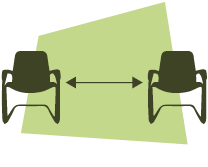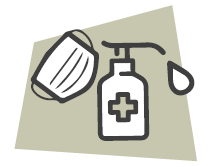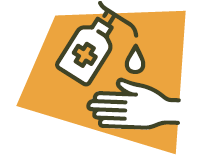Fall Nuka Conference Agenda
Day 1, September 20, 2021
| 7:30 – 8:30 a.m. | Registration and Breakfast | |
| 8:30-8:45 a.m. | Blessing and Welcome | |
| 8:45 – 10 a.m. | Nuka System of Care Overview April Kyle, President/CEO, Southcentral Foundation
| |
| 10 – 10:15 a.m. | Break | |
| 10:15 – 11:30 a.m. | Powerful Primary Care Approach Doug Eby and Donna Galbreath
| |
| 11:30 a.m. – 12:45 p.m. | Lunch | |
| 12:45 – 2 p.m. | Concurrent Workshops | |
| Workforce Development Kristi Brenock-Leduc, Karen McIntire, Barb Sappah
| Data and Information Management Mike Hirst, Steve Tierney, David Fenn
| |
| 2 – 2:15 p.m. | Break | |
| 2:15 – 3:30 p.m. | Introduction to Behavioral Health Integration Melissa Merrick, Jackie Ballou, Troy Wolcoff
| |
| 3:30 – 3:45 p.m. | Break | |
| 3:45 – 4:30 p.m. | Managing Change and Innovation Michelle Tierney, Karen McIntire
| |
| 4:30 p.m. | Adjourn | |
Day 2, September 21, 2021
| 8 – 9 a.m. | Breakfast | |
| 9 – 10:15 a.m. | Identifying and Addressing Trauma and its Impacts on Health Through Cultural Strategies Polly Andrews, Marcel Bergeron
| |
| 10:15 – 10:30 a.m. | Break | |
| 10:30 – 11:45 a.m. | Tour of Southcentral Foundation’s Anchorage Native Primary Care Center Doug Eby
| |
| 11:45 a.m. – 1 p.m. | Lunch | |
| 1 – 2:15 p.m. | Strategic Planning and Using the Voice of the Customer for Improvement Sharon Fenn, Monica Lee, Melissa Caswell
| Advanced Behavioral Health Integration Melissa Merrick, Allison Herman, Roger Fox
|
| 2:15 – 2:30 | Break | |
| 2:30 – 3:15 p.m. | Integrated Care Team Optimization Steve Tierney, Rona Johnson
| |
| 3:15 – 4 p.m. | Cultural Closing – Alaska Native Dance | |
| 4 p.m. | Adjourn | |
Stay for the Nuka Integrated Care Team Training!
Considering adding the Integrated Care Team Training intensive to your registration, which follows the Fall Nuka Conference on September 22-23! In this training, you will explore Southcentral Foundation’s Nuka System collaborative care model through interactive, subject matter expert led panels. We encourage participants to engage and ask questions throughout to get the most out of the training for your use.
At the end of the Integrated Care Team Training, you will be able to:
- Implement team based best practices in the technical day-to-day delivery of care
- Recognize their relational styles and the impact of different work energies on team dynamics
- Utilize a personal toolbox developed in the training to support self-awareness, navigating resistance, and handling conflict
- Facilitate communication to manage change and workflow in an integrated care team
Integrated Care Team Training Agenda
Day 1, September 22, 2021
| Time | Presenter | Topic | Learning Objectives |
| 8 – 8:15 a.m. | LI | Welcome & Check-In | Not requesting CME/CEU |
| 8:15 – 9:15 a.m. | Solveig Johnson Christa Phelps | Southcentral Foundation Nuka System of Care Overview |
|
| 9:15 – 9:30 a.m. | Break | ||
| 9:30 – 10:30 a.m. | Solveig Johnson Christa Phelps | Drive to Change |
|
| 10:30 – 10:45 a.m. | Break | ||
| 10:45 – noon | Solveig Johnson Christa Phelps | Change Management |
|
| noon – 1 p.m. | Lunch | ||
| 1 – 1:30 p.m. | Steve Tierney Chelsea Ryan | History of the Integrated Care Team |
|
| 1:30 – 2:30 p.m. | Steve Tierney Chelsea Ryan | Roles and responsibilities within SCF’s Nuka System of Care Part 1 |
|
| 2:30 – 2:45 p.m. | Break | ||
| 2:45 – 3:15 p.m. | Steve Tierney Chelsea Ryan | Integrated Care Teams in Action | [ICT ACTIVITY (ICT Team Videos and Debriefs)]
|
| 3:15 – 4:30 p.m. | Steve Tierney Chelsea Ryan | Roles and responsibilities within SCF’s Nuka System of Care Part 2 |
|
| 4:30 – 4:45 p.m. | Check-out | Not requesting CME/CEU |
Day 2, September 23, 2021
| Time | Presenter | Topic | Learning Objectives |
| 8-8:15 a.m. | Learning Institute | Check-in | Not requesting CME/CEU |
| 8:15-9:15 a.m. | Melissa Merrick Troy Wolcoff Marisa Bashore | History of Behavioral Health Integration at Southcentral Foundation Part 1 |
|
| 9:15-10 a.m. | Melissa Merrick Troy Wolcoff Marisa Bashore | History of Behavioral Health Integration at Southcentral Foundation Part 2 |
|
| 10 -10:15 a.m. | Break | ||
| 10:15-11 a.m. | Dorothy Fredenberg | 5 Dynamics (Simpli5): Energy Styles and Individual Assessment Maps | Not Requesting CME/CEU
|
| 11 a.m.-noon | Dorothy Fredenberg | 5 Dynamics (Simpli5) Continued: Personal Toolbox and Check-Out | Not Requesting CME/CEU
|
| noon-1 p.m. | Lunch | ||
| 1-2:15 p.m. | Erin Carrick, PA Stephanie Janke, RN Roni Phillips, CMA Emily Wood, BHC Samantha Painter | Q&A Integrated Care Team Panel |
|
| 2:15- 2:30 p.m. | Break | ||
| 2:30-4 p.m. | Steve Tierney Olivia Lorenzo | Operations and Logistics |
|
| 4-4:30 p.m. | Solveig Johnson Guil Prickette | Implementation Strategies and Next Steps
|
|
| 4:30-4:45 p.m. | LI Staff | Questions/Close Out | Not requesting CME/CEU |
Who Should Attend
The Nuka Conferences are ideal for anyone interested in learning best practices from a health care system that has reduced cost, improved health outcomes and increased customer and employee satisfaction.
- Analysts / Associates
- Administrative Support
- Interns / Fellows
- Instructors / Educators
- Executive Leadership
- Directors
- Managers
- Direct Clients / Patient Services
- Specialists
- Board Members / Owners
- Coordinators
- Consultants
You should consider attending if you:
- Are seeking proven solutions, best practices and tools to address challenging organizational issues in this rapidly changing industry.
- Would like to see a vision for the future of health care.
- Are interested in learning new skills.
- Would like to network other health care organizations.
still on the fence about an in-person conference?
 Enjoy breakfast and lunch in a socially distanced environment with individually bundled meals to adhere to safeguards.
Enjoy breakfast and lunch in a socially distanced environment with individually bundled meals to adhere to safeguards.
 The keynote room, breakout rooms and other spaces will be set up to allow plenty of space between tables and chairs.
The keynote room, breakout rooms and other spaces will be set up to allow plenty of space between tables and chairs.
 Everyone attending in-person must be fully vaccinated against COVID-19.
Everyone attending in-person must be fully vaccinated against COVID-19.
 Masks, disinfecting wipes, and hand sanitizer will be available in gathering areas.
Masks, disinfecting wipes, and hand sanitizer will be available in gathering areas.
 Hand-sanitizer stations will be plentiful throughout the common areas.
Hand-sanitizer stations will be plentiful throughout the common areas.
 Doors, tables, chairs, and other touch points will be cleaned and sanitized before guests arrive and throughout the conference. Disinfecting wipes will also be placed throughout the meeting space.
Doors, tables, chairs, and other touch points will be cleaned and sanitized before guests arrive and throughout the conference. Disinfecting wipes will also be placed throughout the meeting space.
Hotels / Accommodations
- SpringHill Suites (within walking distance of campus)
- Home2 Suites by Hilton Anchorage
- Dimond Center Hotel
- Courtyard by Marriott Anchorage
- Hilton Garden Inn Anchorage
- Embassy Suites by Hilton
- Sheraton Anchorage Hotel
- My Place Hotel
- Hampton Inn Anchorage
If you’re arranging an alternative vacation rental (e.g., through Airbnb, HomeAway, or VRBO), here are a few areas that are near Southcentral Foundation and other noteworthy locations:
- “U-Med” or “U-Med District” refers to the part of Anchorage that hosts two universities, several health care providers, and the Alaska Native Health Campus (where Southcentral Foundation is located). This area is bound by East Northern Lights Boulevard, Baxter Road, Tudor Road, and Lake Otis Parkway.
- Downtown Anchorage is roughly 3rd to 10th Avenue between L Street and Gambell Street (including homes / rentals near the Delaney Park “strip”). Features many hotels, restaurant options, and tourist shops. Ask your hosts or rental contact about any safety concerns in their particular area.
- East Anchorage / College Gate areas include places near Russian Jack, Nunaka Valley, and Baxter. These well-established neighborhoods are primarily residential and feature many small parks and trails.
- Turnagain / West Anchorage is the area closest to the Ted Stevens International Airport and a 15-20 minute drive to Southcentral Foundation. This area is home to Kincaid Park: 1,400 acres of rolling, forested hills and beautiful scenery, with the Tony Knowles Coastal Trail connecting it to downtown along the coast.
FAQs
Will meals be provided?
Registration includes breakfast and lunch on all days of the conference (September 20-21). If you have special dietary needs, please indicate them in registration or email us at SCFNukaEvent@scf.cc.
Will I have access to presentation PowerPoints?
Your registration also includes the presentation slides and materials. You will receive an email after the conference that directs you to a site to download the materials.
I need a Visa to travel. Can you provide a letter of invitation?
Once your registration is paid, please contact us at SCFNukaEvent@scf.cc or at (907) 729-8608 to request an invitation letter.
When should I arrive at the conference?
Registration and networking breakfast is 7-8:30 a.m. Alaska Daylight Time. If you do not plan to attend breakfast, please complete registration by 8 a.m.
What is the recommended attire for the conference?
Attire is casual. Temperatures in the meeting rooms may be cool.
Will wireless internet be available at the conference?
Yes. Wireless is available at the conference location.
What are the parking options at the conference?
Parking is available at the conference location, including a nearby garage. All parking is free.


